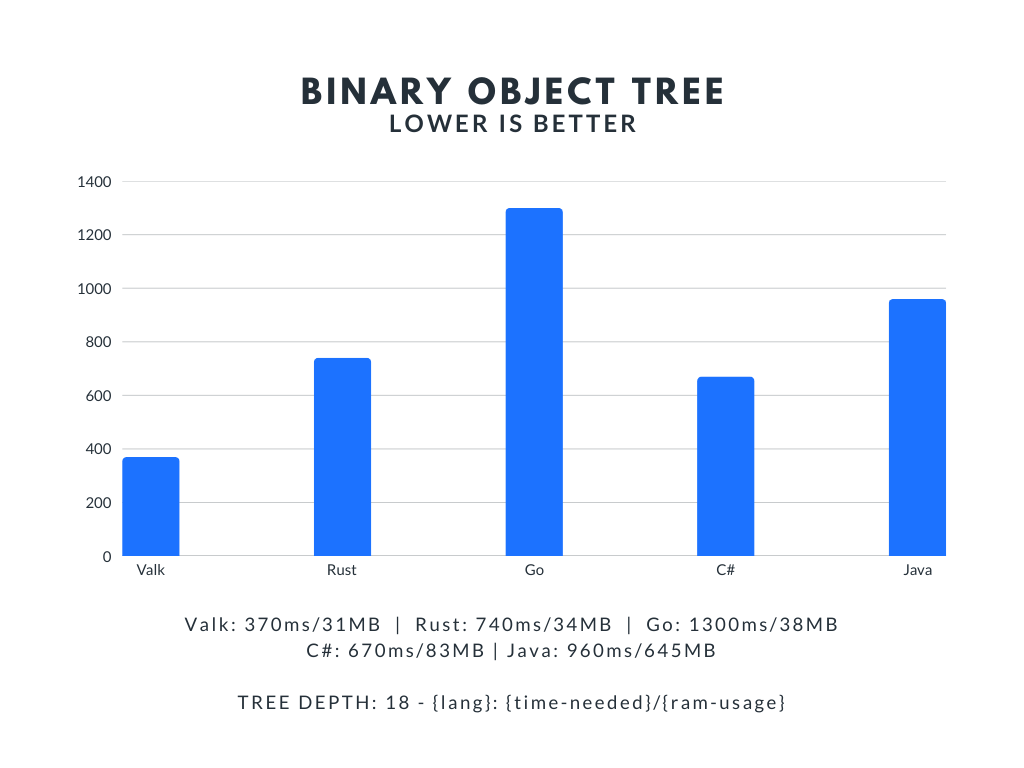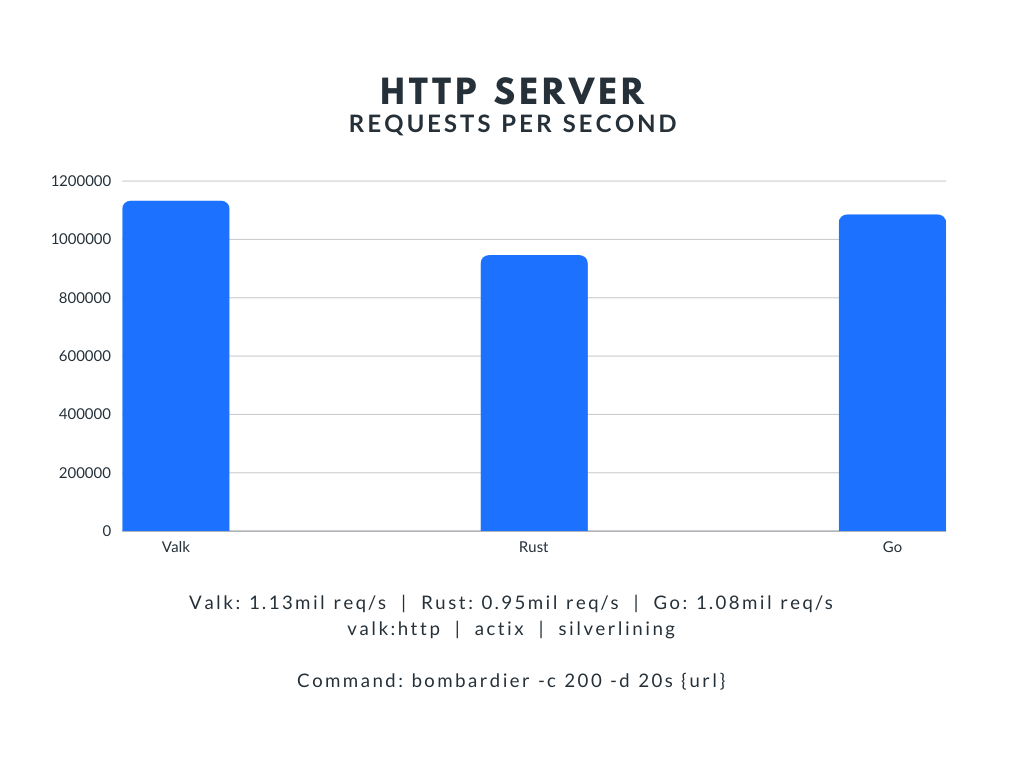Website | Documentation | Roadmap | Discord
Valk is a programming language aimed to be fast & simple at the same time. It can be used for high & mid level programming. Valk is unique because of its new way of doing garbage collection. Its runtime is much faster than go and in some cases rust, while also using less memory. On top of that, a GC allows us to keep the language very simple like python. You get the best of both worlds.
Features: Fastest GC ⚡ (no stop-the-world), Coroutines, No undefined behaviour, Great package management, Generics, Fast compile times, Cross compiling, linking c-libraries.
Coroutines are purely for concurrency. Threads can be used for parallelism.
curl -s https://valk-lang.dev/install.sh | bash -s latest// main.va
fn main() {
println("Hello Valk! 🎉")
}valk build main.va -o ./main
./mainmacOS: brew install llvm@15 && brew link llvm@15
Ubuntu / Debian: sudo apt-get install llvm-15 clang-15 lld libcurl4-openssl-dev
git clone https://github.com/valk-lang/valk.git
cd valk
makeValk is only faster in the way it creates and manages objects, which most programs revolve around. Objects are created using pools. These pools are much faster than using malloc and free all the time (and use less memory). A GC always has some overhead, but the overall performance gain is much higher than the loss. Which results in Valk being faster than Rust sometimes. Note that our way of doing GC is very different than other languages. Each thread manages its own memory and we only trace when we absolutely have to. The other 9 out of 10 times we simply reset the pools with 1 line of code. This is something that's only possible (in a simple way) if your compiler was built based around this idea. And that is what Valk does. 👏
Note: we dont have many tests yet to compare valk vs rust or other languages. These are just conclusions from the small amount of tests we have right now. Feel free to make your own and share them.
For the http server test we used single header over local network requests because that resembles a more natural way of http servers. Some other benchmarks like Techempower use bundled piped requests, in that case the results are: Valk 10m req/s, Rust 10m req/s, Go 12m req/s.
-
Each thread handles it's own memory, but you can still share your variables with other threads. Even when your thread has ended, the memory will still be valid and automatically freed once other threads no longer use it.
-
Valk does not force the user to use mutexes/locks for shared memory. Therefore the program can crash when you use multiple threads to modify the same data at the same time. Reading the same data with multiple threads is fine.
-
Unlike other languages, our GC has no randomness. Every run is exactly the same as the run before to the last byte. So there are no fluctuations in cpu usage and memory usage. (Except when using shared memory over multiple threads)
-
The GC does not guess which value on the stack is a GC'able pointer. Instead we create a custom stack and the compiler knows where to store which pointer at compile time.
Once we hit version 0.1.0, we want to look for people who can help with the standard library & 3rd party packages. If you want to contribute, just hop into the discord and post in general chat or send a private message to the discord owner.
Binary tree benchmark code: https://programming-language-benchmarks.vercel.app/problem/binarytrees

